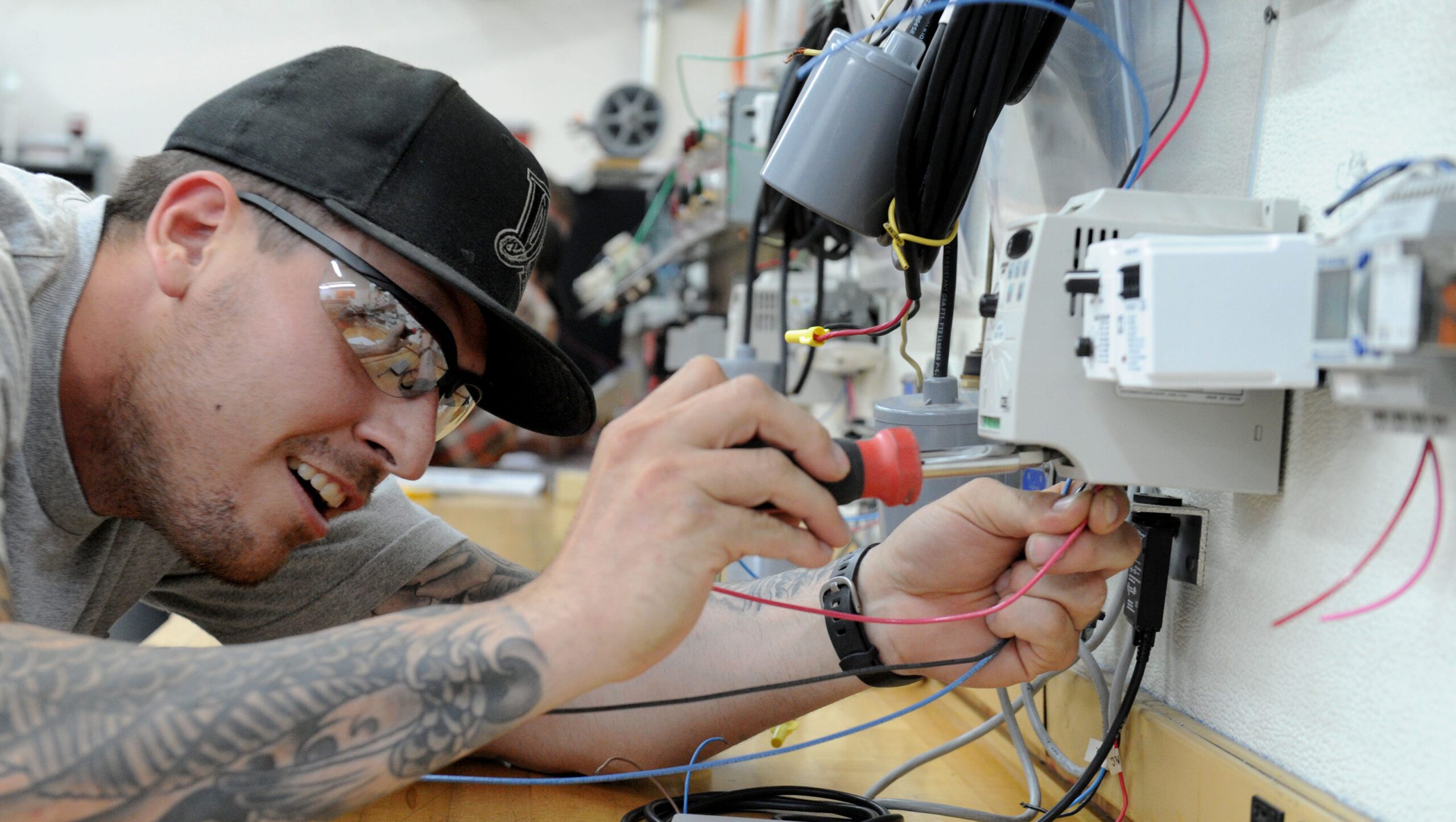As an electrician, you work with electricity and related devices to install, maintain, and repair wiring. This career offers a high income and stability.
You can earn your license by completing an apprenticeship program that includes on-the-job training and classroom instruction. These programs can take 4–5 years to complete.
Electricians install, repair, and maintain electrical power systems that connect the lights and appliances in homes and businesses. They may also work in industrial settings or on construction sites to provide wiring and other services for machinery. They inspect and test equipment and systems to ensure that they are safe, and they maintain compliance with codes and regulations.
The job of an electrician requires skills in the installation, maintenance, and repair of electrical systems, as well as knowledge of safety requirements. They must be able to follow blueprints and use tools to determine how a system is supposed to operate. They also need to be able to use ladders, scaffolding, and other types of equipment safely.
They often work with customers who have questions or problems, so they need to be able to communicate effectively with them. They may also need to be flexible to work long hours or overnight shifts.
A typical work week for an electrician is 40 hours a week, but it may vary by season or during inclement weather. Some electricians are self-employed and can set their own hours.
Some electricians specialize in one type of work, such as residential or commercial wiring. They are required to have a license from the state where they work, so a college degree is recommended for this career.
Many electricians use a combination of hand and power tools to complete their tasks. They may also use a variety of testing devices, such as oscilloscopes and voltmeters, to identify problems in electrical wiring or equipment.
The demand for electricians is expected to grow 10 percent from 2018 to 2028, faster than the average for all occupations. This includes an increase in the demand for alternative power generation, such as solar and wind, which will require more electricians to install and service these systems.
Electricians install, maintain, repair, and test electrical equipment and systems for industrial, commercial, or domestic use. Depending on their employer, electricians may also work on electrical transmission and distribution equipment.
The first step in becoming an electrician is to complete an apprenticeship or traineeship program. Often, this involves a combination of classroom instruction and on-the-job training under the supervision of a master electrician. The apprenticeship can take four to five years, and you can receive up to 2,000 hours of paid training per year.
Once you complete your apprenticeship, you need to be licensed by your state to practice as an electrician. This usually requires an examination that tests your knowledge of the national code as well as various electrical concepts and safety practices.
Some states require you to accumulate verified on-the-job experience before you can take the exam. This will help you meet the training requirement and may shorten your time to become a licensed electrician.
Alternatively, some people choose to attend trade school for an associate degree or certificate. These programs focus on safety and electrical theory, and many of them offer hands-on labs to teach you the skills you need for the job.
You can also earn a bachelor’s degree in electrical engineering or technology from an accredited college, which will give you more specialized knowledge. This type of degree can also be a good stepping stone to an apprenticeship.
Most states will require continuing education in the field, as electricians are constantly working to upgrade their skills. This can include reading, speaking with other electricians, and attending upgrading seminars.
Another type of training for electricians is military training, which can be valuable for those who want to get into the field quickly and have a great deal of hands-on training. Typically, this takes a minimum of two years to finish and includes a strong mix of academic courses and on-the-job training.
Generally, electricians earn a median wage of $60,040. These salaries can vary depending on the region and industry, as well as the amount of experience you have.

